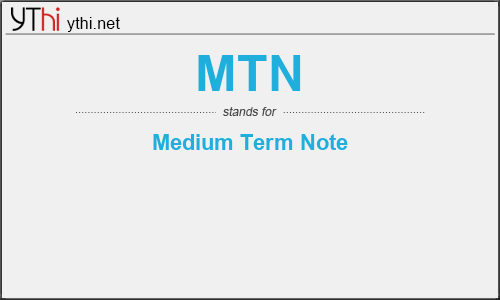What does MTN mean? What is the full form of MTN?
The full form of MTN is Medium Term Note
A medium-term note (MTN) usually refers to a note payable that comes with a maturity date that is within five to ten years.
A note, or note payable, is a legal document that represents an amount owed from a borrower to a lender or investor. Notes generally include a principal amount, or face value, that is lent to the borrower and is expected to be repaid at a later date, in addition to scheduled interest payments. Notes can be thought of as a form of fixed income security that is similar to a bond.
The notes can be issued by various organizations and entities, including federal governments, state or provincial governments, municipal governments, corporations, non-profit organizations, etc.
In order to distinguish medium-term notes from other notes, the definition of “medium term” must be identified. Generally, when comparing fixed-income securities, all else being equal, medium-term notes will come with a higher stated rate or coupon rate than shorter-term notes.
It is because, to compensate for the risks associated with lending money for a longer period of time, an investor will demand a higher yield. Following that logic, a long-term note will generally offer a higher stated rate than a medium-term note.


Leave a Reply
You must be logged in to post a comment.